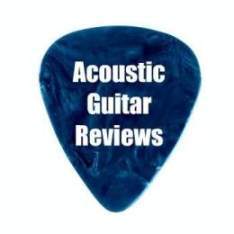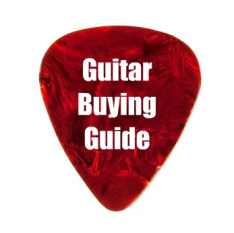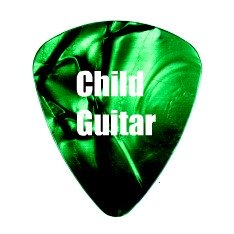|
Reviews of Epiphone Acoustic Guitars
Epiphone Acoustic Guitars is today owned by Gibson Guitars, but they weren’t always. The history of The Epiphone Company is a fascinating one; a history that goes back over 138 years to the shores of the Aegean Sea where there was a man in love with Mandolins.
Started by Anastasois Stathopoulos, the son of a Greek Timber Merchant, the Epiphone Company was originally a lute, violin and mandolin-making company that moved to the United States in 1903 (via a stopover in Turkey),where they added guitars to their mix, and soon became a successful company. Anastasio’s son Epaminodas (who would come to be known as “Epi”) took over the business after his father’s death, and it thrived during the Jazz era. By 1923 had become so successful that they adopted the name “Epiphone” (a combination of Epi’s name and ‘phone’ the Greek word for sound) and due to the fact that they were producing some of the best acoustic guitars available, enjoyed a healthy rivalry with the up and coming Gibson Guitar company for a number of years. Epiphone FaltersWWII brought Epiphone Acoustic Guitars progressive march to a screaming halt due to a lack of materials and workers, and after Epi died of leukemia during the war and things began to fall apart. By the late 1950’s the company was in serious trouble, and they offered Gibson an offer to buy part of the company. They didn’t need to ask Gibson twice.After an ‘iffy’ restructuring in 1970s it was decided that Epiphone Acoustic Guitars would become a ‘lesser’ version of Gibson, offering many of the same guitar models, but with less expensive materials and being mass produced instead of individually crafted. Epiphone Acoustic Guitars were, for a while, being made in Japan, where their reputation plunged like a rock during the era of ‘cheap Japanese products’ and the name became associated with cheap acoustic guitars. Epiphone FlourishesAfter a move to Korea and after having been put under new management, Eiphone’s reputation began to climb again in the 1990s, until once more, Epiphone Acoustic Guitars are seen as a solid and reliable brand.The guitars in Epiphone’s series are modeled for the most part on Gibson’s series, as well as shapes and styles, but with a few changes and tweakings in order to make them more affordable to the general public.
Epiphone Acoustic Guitars Series Roll CallEpiphone HummingbirdEpiphone’s Hummingbird guitar is based on the Gibson version and has a rich, warm sound that is instantly recognizable. Made with mahogany bodies and solid spruce tops, Hummingbirds are great acoustic guitars even though they are also rather big guitars. Their size can be a bit hard to handle for smaller or younger players. Very popular during the 1960s, Hummingbird guitars are associated in most people’s minds with the hippy movement, as that was the style of guitar that was being played by so many people in that time frame. Their claim to fame is due in part to this association (one of the reasons that Gibson decided to reintroduce the Epiphone Hummingbird), but also to having been played by artists such as Nancy Hart, and the stylized hummingbirds inevitably worked into the pickguard or rosette around the Hummingbird always lets you know that you are in the presence of a classic instrument.Epiphone DoveEpiphone’s Dove guitar is another instantly recognizable instrument, though it is usually the trademarked dove worked onto the pickguard that gives it away, as does the sound created by a body of maple and its solid spruce. Another original Epiphone Acoustic Guitars model brought back after Gibson took over the company, the Dove’s tone is not as mellow as the Hummingbird. It has a brighter, crisper sound that some people find more preferable to the Hummingbird, especially when doing solo work. The difference in tones between the Hummingbird and the Dove is a testament to the difference that different tonewoods can make when it comes to a guitar’s overall sound.Epiphone AJ-100The Epiphone AJ-100 series are built on Gibson’s Advanced Jumbo shape. That gives these guitars a beautifully big and rich sound that is partly due to their deep and wide construction, and partly due to the use of Mahogany for the body as well as select spruce for their tops. The sheer size of these guitars makes it difficult for many to handle comfortably, though the tone is incredibly well balanced for a relatively cheap acoustic guitar. An excellent instrument for group work, the AJ-100 has a surprisingly loud volume that lets you be heard even over large crowds, though they can be a bit ‘boomy’ if you do not use the right weight of strings.Epiphone AJ-220SThe Epiphone AJ-220S has an interesting bell shape. While their lower half is rather large to encourage a big sound, the upper body is smaller and rounder. This combination of shapes gives them an interestingly deep tone that is extra loud. Throw a select mahogany body and solid Sitka spruce top, and you have an overall crispness (particularly on the high notes) that many find excellent for solo work. While the lower ranges are not emphasized as highly as are the higher notes, they are not neglected. There is no question about the volume, however. The AJ-220S has a projection and volume that make this a really good acoustic guitar for those times when you just need to be heard.Epiphone DR-100The Epiphone DR-100 series are based on the very basic dreadnought shape that makes them large of build, deep of body and broad of shoulder, making the DR-100 a difficult guitar to handle for many younger and smaller players. The mahogany back and sides and select spruce top give the DR-100 a well-rounded crispness that can, on higher notes, become rather twangy and may need some adjustment of string weight in order to find one that will fit your particular playing style and release the sound of what is, at heart, a good acoustic guitar.Epiphone DR-220SThe DR-220S is another series of guitars built on a dreadnought body. While the DR-220S has many of the same features as the DR-100 in regards to the body depth, shoulder breadth and overall bigness, they are also made with a mahogany body and a solid, Sitka spruce top that gives the DR-220S an extra richness and extended sustain that the DR-100 does not have. These are loud guitars, and they can be almost overpowering if you do not have the knowhow to control them. For those times when you need to be heard, however, the DR-220S are great acoustic guitars.Epiphone DR-500MThe DR-500M series marks a return to Epiphone Acoustic Guitars prestigious 1930s guitars. Sporting a solid mahogany body and a solid Sitka spruce top, the DR-500M has an incredibly rich and warm tone that you can feel in your fingertips. This great acoustic guitar is built on a dreadnought body with the traditional wide shoulders and deep body, and is definitely a handful, especially when it comes to their volume, which is huge. With aesthetic features that hearken back to the 1930s, the DR-500M is a favorite with those that prefer their guitars to not only have solid sound, but to look like a classic guitar should.Epiphone EJ-200Epiphone Acoustic Guitars Super Jumbo series are curvy beauties whose shape and tone will steal your heart away. Made with a maple body and solid spruce top, the EJ-200 has a warm, rich tone that is at the same time bright without being strident. While the overall size of these guitars is large, the shape of them makes them manageable for even younger or more slightly built players, and they fits comfortably against the body or on your lap. While these guitars can sound a bit tinny when flatpicking, for fingerstyle playing they are, overall great acoustic guitars.Epiphone EL-00The EL-00 Series are good acoustic guitars with a small, easily handled size that are comfortable to carry and can adapt themselves to almost any situation. Being ‘parlor sized’ does not phase the tone of the EL-00, and they has a quite appealing vintage tone that brings to mind strumming sessions on the front porch in the late 1920s. The EL-00 also has a surprisingly large volume for a small guitar; a volume due in part to their small curvy shape, and in part to the combination of mahogany wood for the back and sides and solid Sitka spruce for their tops.Epiphone PR-150The Epiphone PR-150 series are excellent beginners acoustic guitars. Built dreadnought bodies, they have a spruce top (though not a solid top) mahogany back and sides, and are very well balanced overall for tone as long as they are not treated too aggressively. With the price being the lowest of the Epiphone Acoustic Guitars series, the PR-150 is very affordable and should fit nicely into anyone’s budget. They are also regularly offered in ‘beginners guitar kits’ or ‘beginners guitar packs’ with basic instruction manuals to help the beginning acoustic guitarist get started.Epiphone ExpeditionThe Epiphone Expedition is a compact little number; a travel sized guitar made with a mahogany body and a solid spruce top that will fill your need for a ‘guitar on the go’ without breaking the bank. This little number does equally well as a practice guitar, or for strumming around the campfire, and is excellent for younger players who want a good beginner’s acoustic guitar.ConclusionAs you can see, Epiphone has a good number of great acoustic guitars to choose from, and while there may not be a great number of guitars in each series, the quality of the guitars offered is excellent. And the cost of Epiphone acoustic guitars is priced so that even those on the tightest of budgets will be able to afford a quality instrument.The combination of quality and value makes Epiphone Acoustic Guitars a great choice for a beginners acoustic guitar, or for those who wish to try out different types or styles of guitars without breaking the bank. And Gibson’s commitment to product quality ensures that each Epiphone Acousic guitar is subjected to the same sort of quality testing that Gibson models receive so you know that when you buy a guitar from the Epiphone series, you are definitely getting your money’s worth.
Epiphone Guitar ReviewsOwned by Gibson, Epiphone Acoustic Guitars makes a truly quality instrument. They are most noted for their products in the $150 range, though high-end guitars are their forte. Especially the EJ200 model. All have great materials and features. Most of all, they have a signature sound that is half Epiphone, half Gibson. Epiphone is the chosen guitar of artists like Brian Aubert (Silversun Pickups) and Chad Kroeger (Nickelback).
Return to Best Acoustic Guitars
|












